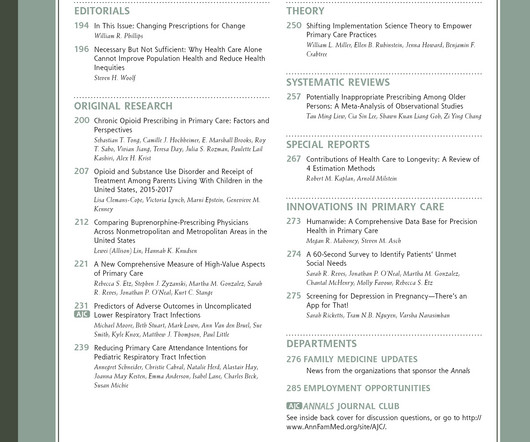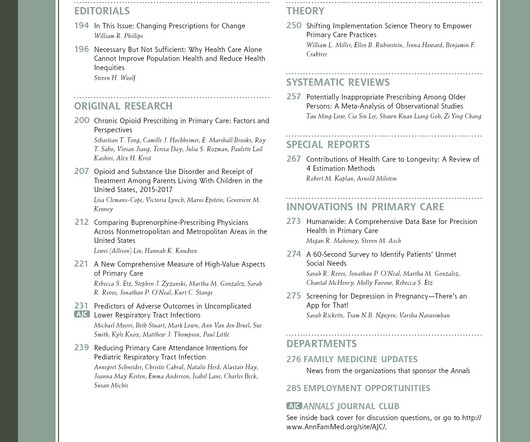Outcomes of Guidelines from Health Technology Assessment Organizations: A Systematic Mixed Studies Review [Systematic review, meta-analysis, or scoping review]
Annals of Family Medicine
NOVEMBER 20, 2024
Objectives: To explore and measure the outcomes of HTA organizations’ guidelines in family medicine. Phase-1: We conducted a hybrid deductive-inductive thematic analysis, identified the types of outcomes, and displayed the relationships between these types on a concept map. Setting: Community-based primary health care.
























Let's personalize your content